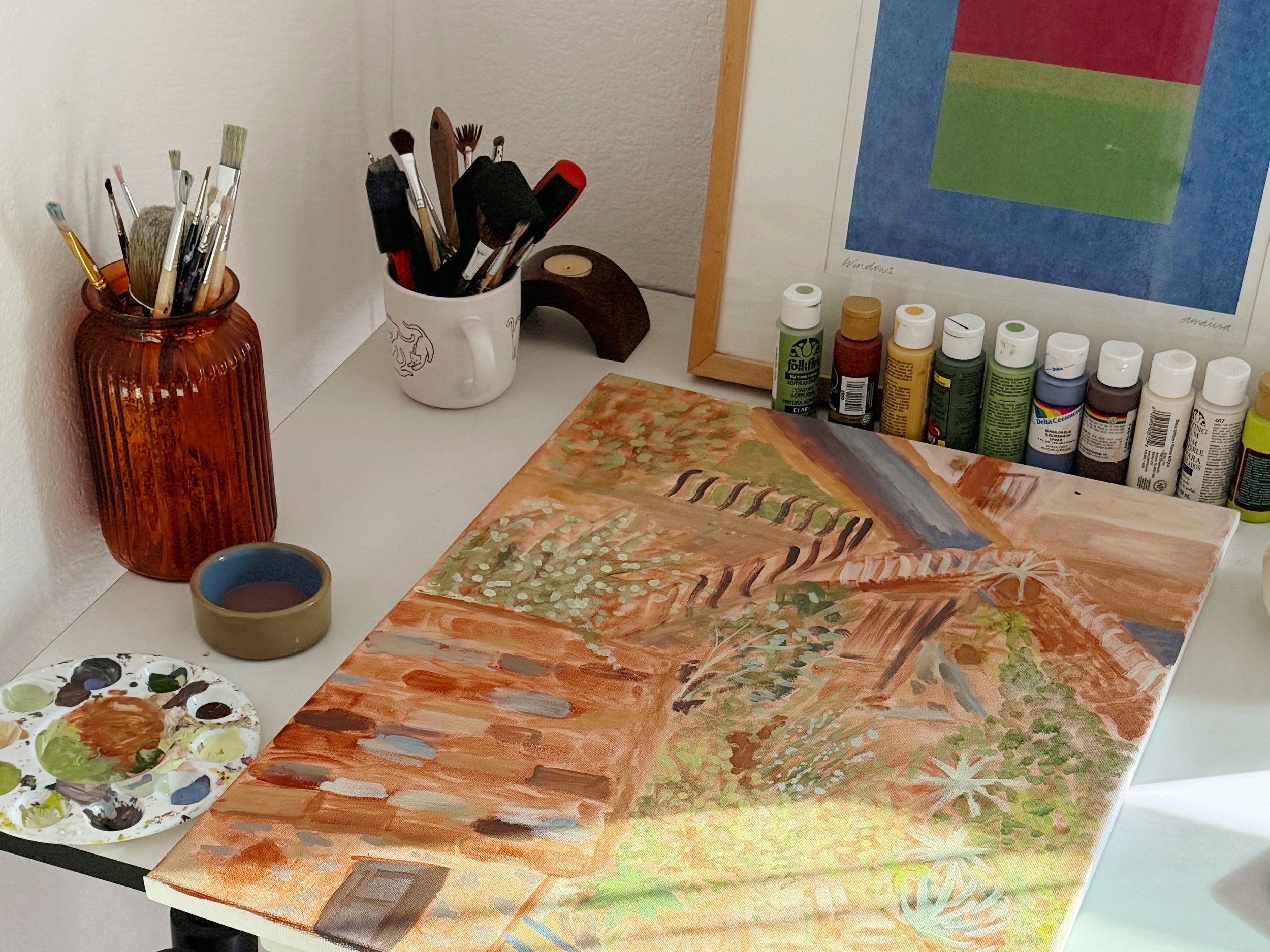Embracing Flexibility and Letting Go of “Control”
Hello 2025! And hello to everything that comes with the start of a new year - yes, I’m looking at you, New Year’s resolutions. As we’re now nearing the end of January, maybe you’ve realized that your well-intentioned goals have quickly become a source of stress (and not progress). Or maybe, you didn’t set any resolutions yet you feel constantly overwhelmed from the pressure of high expectations. Whatever brings you here, I imagine you’re curious about making a change. So let’s get into how letting go of “control” can provide opportunities for more growth, self-compassion, and fulfillment. All things you deserve.
Why Am I So Stressed and Overwhelmed?
Let me preface that I’m not anti-goals! In fact, I believe there is a lot of value in setting thoughtful intentions for ourselves. But right now, we want to start looking at how we get to this place of overwhelm.
At first, creating a plan can feel empowering, purposeful, and usually manageable. It can provide structure, direction, and a sense of safety - similar to mapping out a route before heading somewhere unfamiliar. Most of us don’t just “wing it.” We prepare, use tools, and figure out the best way to get from point A to point B. But what happens when there’s an unexpected detour? Or when our experience inevitably shifts - a road closes, a tire pops, Apple Maps says one thing and Google Maps says another? Suddenly, our once-solid route has now left us feeling stressed and stuck.
And despite, what we often (and understandably) want to believe, life doesn’t always go as planned and there’s so much beyond our control. We get sick, we experience loss, and we face unexpected changes. If that feels a bit terrifying, that’s okay. It is scary! It’s also normal, especially for those who struggle with anxiety, that we may become so focused on wanting to return to the original plan, that we simply breakdown right there and don’t move forward at all. If that is your experience, know that you’re not alone. We cling to control because it feels certain when facing uncertainty.
How Perfectionism Fuels Anxiety
Similarly, perfectionism is often rooted in fear. There could be the fear of disappointment, the fear of judgment, the fear of things falling apart, or the fear of not being enough. This mindset leads us to set rigid (i.e. unrealistic) expectations for ourselves, and when we don’t (i.e. can’t) meet them, we feel like we’ve failed. This cycle of striving and falling short or planning and not accounting for change, leaves little room for self-compassion and usually a lot of room for self-criticism and stress. The resulting anguish or inadequacy intensifies the anxiety, driving one to seek more control and more perfection in an attempt to avoid these difficult feelings. Enter - the cycle of anxiety.
The Importance of Flexibility
Recognizing these anxiety cycles in our lives, is the first difficult step to cultivate flexibility. This awareness helps us identify when our pursuits: wanting to achieve, wanting to show up for others, wanting to feel safe (all things that aren’t inherently “bad”) have become unsustainable. Assessing if your current approach is serving you, requires patience and honest reflection. So what does flexibility even mean?
Flexibility doesn’t mean abandoning your plans or goals - it’s about finding a balanced way to pursue them. Instead of holding on so tightly that every misstep feels like failure, flexibility invites us to loosen our grip and adjust our expectations. It’s about finding the middle ground when your brain goes to “success” or “failure,” “right” or “wrong.” Flexibility allows room for nuance and creativity, helping you see opportunities where rigid thinking might only see obstacles.
Think of it as bending without breaking. It’s the ability to adapt when life throws curveballs and to keep moving forward, even when the path doesn’t look the way you envisioned. Flexibility doesn’t mean lowering your standards; it means stretching yourself to reach what matters to you, without overextending. It’s a mindset that prioritizes progress over perfection and helps you respond to challenges with grace and resilience, rather than resistance. By embracing this approach, you can pursue your goals in a way that feels empowering and helpful, rather than exhausting or overwhelming.
This principle also applies to our emotional wellbeing. The goal in life isn’t to only be happy. Flexibility with our emotions means allowing joy and sadness, excitement and fear, peace and frustration to coexist, sometimes, even all in the same day! When we do this, without judgment, we can attend to our emotional needs, instead of having them build up and feel like “too much”. So how do we apply this in our lives?
3 Ways to Foster Personal Flexibility
Set Value-Focused Goals
If you’re overwhelmed by what you want to accomplish, remember that you can remain aligned with your personal values and give yourself the room to adapt. Explore how it feels shifting from:
“I’ll read 40 books this year” to “I’ll prioritize reading that helps me relax”
“I need to accept every invite” to “I can connect with others in ways that energize me”
“I’ll work out every day” to “I’ll move my body in the way that it needs today”
Embrace Rest and Reflection
Build in time to pause, reassess, and make changes as needed. Rest is a necessity, not a reward.Honor Being a Messy Human
Life doesn’t follow a predictable framework, and you don’t have to either. You’re allowed to pause, pivot, and adjust as needed.
Here’s to a Flexible 2025
Ultimately, we’re aiming for less rigidity and more curiosity, less control and more trust, less striving and more being. Life is full of twists and turns - so let’s trade hard lines for soft edges and see where the journey takes us.
If you’re ready to let go of unhelpful expectations and embrace a more flexible approach to life, I’d love to support you! Start by scheduling a free consultation.

